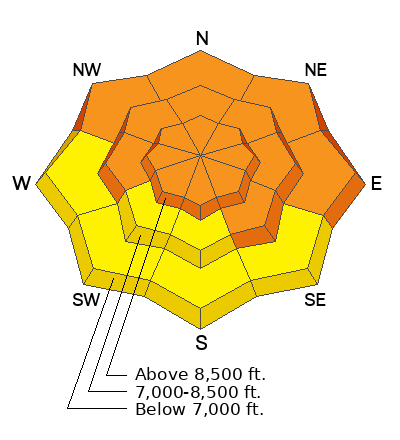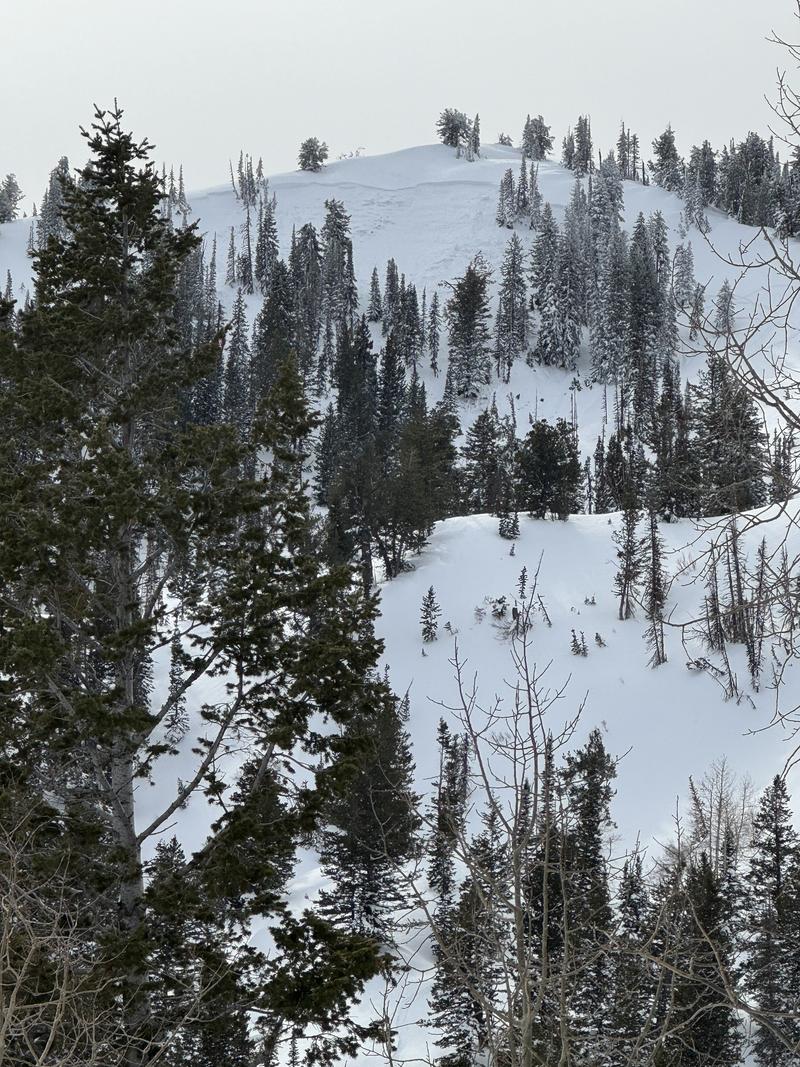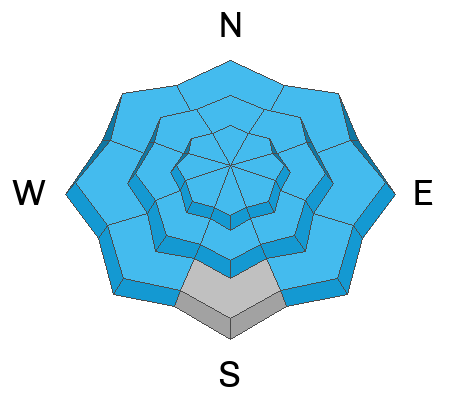Forecast for the Ogden Area Mountains

Issued by Dave Kelly on
Saturday morning, January 20, 2024
Saturday morning, January 20, 2024
The avalanche danger is CONSIDERABLE at upper and mid-elevation slopes west through southeast and at the lowest elevations northwest through east. The danger is MODERATE on lower and mid-elevation slopes facing west through south and southeast.
While we are seeing less avalanche activity on the buried persistent weak layer, we are still not seeing no avalanche activity and the chances of triggering one of these large avalanches 3-5' deep and a couple of hundred feet wide is more of a risk than I am willing to take. There is great travel to be had on lower angle (less than 30°) slopes.
While we are seeing less avalanche activity on the buried persistent weak layer, we are still not seeing no avalanche activity and the chances of triggering one of these large avalanches 3-5' deep and a couple of hundred feet wide is more of a risk than I am willing to take. There is great travel to be had on lower angle (less than 30°) slopes.

Low
Moderate
Considerable
High
Extreme
Learn how to read the forecast here








